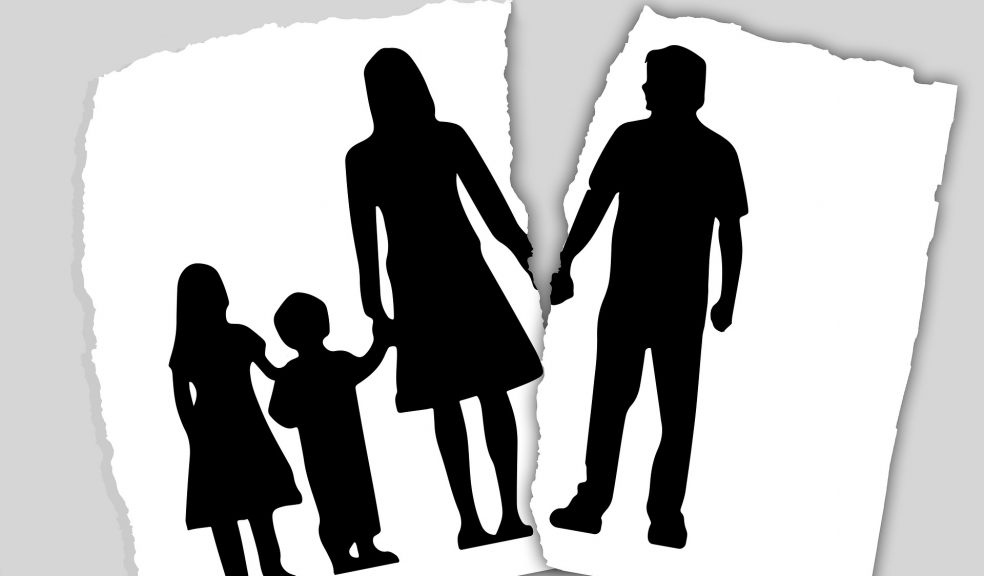
Getting your family through divorce
Falling out of love is no one’s fault. Relationships end, and it’s not fair to place any blame or guilt on yourself when they do. Of course, not every relationship ends amicably. Feelings get hurt, you feel betrayed, and hurt, and it’s hard to not externalise what you are feeling. Divorces can be amicable, and they can get ugly, but when you have a family together your children must always be your number one priority. However, dealing with divorce and matters related to the custody of the children is a lot more complicated than one would expect, because according to www.claremoreattorneys.net/child-custody-in-rogers-county, this can get very emotional, so it's easy to make mistakes along the way. Rather than make mistakes along the way in terms of how to handle your divorce – and truly, divorce brings out a wealth of emotions which can make it difficult to think rationally – follow this guide to help you get your family through divorce.
Accepting and Coming to Terms with Divorce
The first thing that you must understand is that living in a marriage that isn’t working anymore isn’t good for your children. You can try for a long time to make things work for each other’s sake and for your children’s, but at the end of the day this can cause further strain and struggle for the family dynamic and therefore your children.
Children look up to their parents for an example of what a loving relationship should be. When they believe that you are in love, you can potentially be sending mixed messages about what consists of a healthy relationship. If you fight, get angry, or are otherwise sour whenever your partner is around, this can be setting a confusing example and can bring unnecessary stress into a family household.
Another common tactic that couples in this situation can take is subconsciously involving their children in the disagreements. You might not even realize you’re doing it. You might badmouth your partner to your children after you two have a fight in private, or you might ask your children to choose as to who to hang out with for the day – these are tactics that can potentially hurt your children, and cause stress, anger, and resentment.
If your relationship is broken beyond repair, then a divorce may be something to seriously consider. Understanding that this is an acceptable solution is part of the process. Getting a divorce gives the both of you another shot at happiness, and two happy parents that love and spend time with their children will always be infinitely better than two miserable parents who disagree or fight in each other’s company. Accepting that divorce is the solution is often the hardest part of the process, and can be complicated and confusing for both parties, but has its multiple benefits in the long run.
Tips for getting through your Divorce Proceedings
After you have decided to get a divorce with your partner, it’s time to try to forgive. It’s also time to try to keep your children as far away from the divorce proceedings as possible. That is why you need to hire a professional lawyer can help you two navigate your way through your divorce and help you come to an agreeable solution regarding equity and childcare. The more about divorce proceedings you know, the better you can prepare your lives at home.
Tips for telling your children
Honesty is always the best policy, as is telling your children earlier rather than later. One of the biggest difficulties when it comes to divorce is the change in routine and in how their lives are lived. Instead of telling them just before you sign the papers or even after you have signed them, tell them in advance. Let them know that you two are going to get a divorce, but that it doesn’t stop you two from being their mom and dad.
The earlier you tell them, the sooner that you can show them how their lives are going to be. The closer you two work together on this, the better you can create a great home environment for them. Say your partner moves out and rents an apartment that is close to their school. They can then pick the kids up after school, help them with their homework, and make them dinner. You can then pick them up and have them again until breakfast. The more normal, calm, and routine their new lives are, the better.
That way when it comes time for your divorce to be formalised your children already know how their lives are going to be. There is no guessing, there is no fear, you can tell them that yes, you are divorced now, but things are going to stay the same.
Being a single parent
Sharing time with your children will be difficult to get used to, but the more you share your time, the better your children will adapt. That doesn’t mean, however, that you have to share milestones. Instead, put aside your differences and try to forge a friendship. You don’t, after all, want to spitefully ban one parent from a school play or graduation. You want to share in these big moments. Being a single parent should never mean that your partner is banned from your children’s lives unless they pose a danger to their safety.
Moving on after divorce
The next big shock for your children will, of course, be when you two inevitably find someone else. Dating again can be very confusing to your children but like with anything you need to take it slow. Love is an expanding emotion, after all. You don’t have to take love away in order to give it to a new person.
Things can get complicated, however, when your children try to get you and your ex back together. That is why being honest with your children about why it didn’t work out between you two can help. When you are doing this, remember to refrain from badmouthing your partner. Try to be as objective as possible. If he cheated on you, tell your children that he broke your trust in ways that he can’t fix. If you fell out of love with her, tell your children that you two were meant to be friends, but you didn’t know that until recently.
Similarly, you also want to be supportive of whoever it is your partner is now dating. It will be natural to get jealous but try not to let your children know about how you feel. Being spiteful and angry won’t help anyone. The only time you have cause to be concerned is when your children are endangered. Otherwise, you need to take a step back.
Teaching Respect
Showing how to respect someone you don’t may not see eye to eye with is a valuable lesson for your children. Respecting someone means not badmouthing them, and means being civil, and it means understanding their differences. It encourages you and your children to take a look at the world from another’s perspective and try to empathise with it. Showing to your children that you can work together with someone you don’t like is as valuable a lesson as any.
What to do when abuse is a factor
If abuse of any kind is present in your relationship or in the relationship between your spouse and your children, implementing change is paramount. This does not mean taking the brunt of the abuse, but rather levying criminal and civil charges against your spouse in question. You should not stand for either yourself or your children to be subject to physical or emotional abuse, as detrimental as staying together when you don’t want to be together can be, staying in an abusive relationship is worse.
When you fear for your children, there are no ifs or buts on the matter; it is paramount to ensure they’re in a safe environment immediately. This can be incredibly difficult to do, especially if you don’t have the support in the form of family or friends who can help you, but for the sake of your children, it must be done. There are shelters and organisations out there to help and protect you so that you can continue to protect your children.
Depending on how old your children are they will either not understand what is going on or understand too well. What is common in both instances is that you need to impress on the fact that what your spouse has done is not acceptable. It is also important to emphasise that it isn’t your children’s fault and that you will all work together to move past it. Abuse can be a very traumatising experience for everyone but standing up against it and getting away from it is a good first step.
Your children come first
No matter what your situation is, your children should always be your priority. If you can work it out with your ex and have an amicable divorce, that is a better position to be in, but if you are in an abusive relationship, you have to get them and yourself away. Divorce doesn’t have to mean your children are compromised. So long as you prioritise your children’s needs and happiness, it doesn’t matter what your home situation is; your children will have a loving environment to grow up in.














